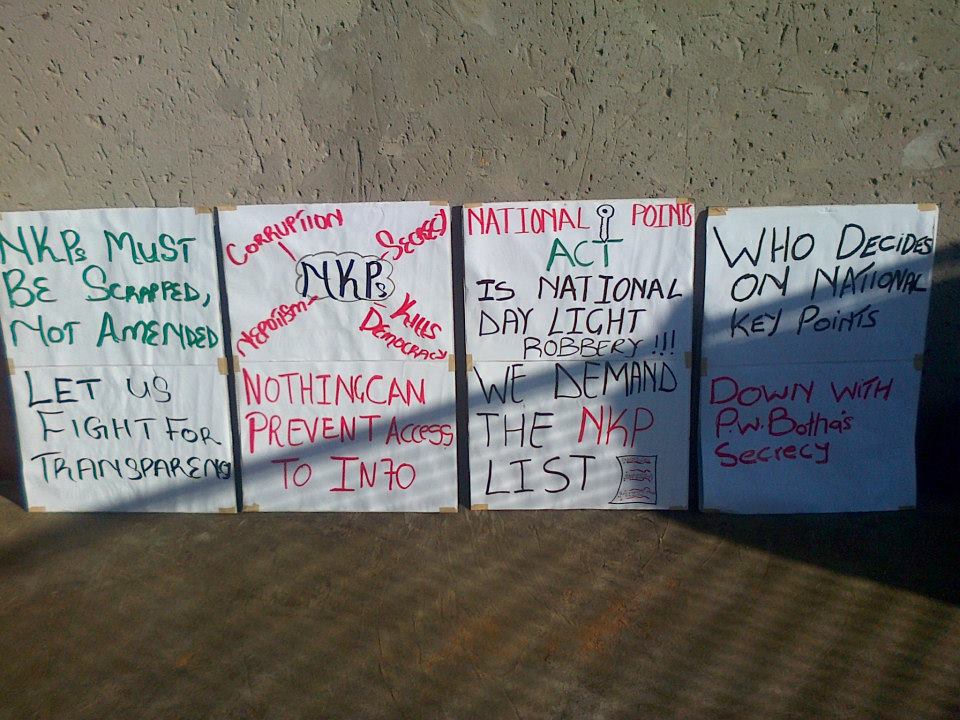UJ workers succeed with access to info
The following update comes from the South African History Archive:
The University of Johannesburg’s correct application of PAIA a breath of fresh air
In November 2014 SAHA submitted a request, in terms of the provision of the Promotion of Access to Information Act, 2000 (PAIA) (the PAIA request) to the University of Johannesburg. The request was for records relating to agreements for the provision of a cleaning service by Elite Cleaning Services (Elite) to the University of Johannesburg. This PAIA request was made after consultation with community members who approached SAHA through the Right2Know Campaign (R2K).
Initially the University of Johannesburg displayed uncertainty with regard to the PAIA process, however their eventual compliance with and correct application of PAIA is to be applauded.
During correspondence regarding this PAIA request the University of Johannesburg informed SAHA that they would be waiving any fees associated with the request.
At first there appeared to be some confusion on the part of the University of Johannesburg about whether the university constituted a public or a private body under PAIA. The university is however a public body in terms of part 1(b)(ii) of the definition of ‘public body,’ as contained in section 1 of PAIA, this is because it performs a public function in terms of the provisions the Higher Education Act, 1997.
As the records requested contained certain information relating to a third party (in this case Elite), PAIA placed a duty on the university to notify Elite of the request. Elite then had an opportunity, as provided for in section 48 of PAIA, to make written or oral representations to the the university’s information officer as why the records should be refused, or to give written consent for the disclosure of the records.
PAIA does however provides that the submissions of a third party on why records should not be released are not binding on the information officer, and it remains the information officer’s duty, after giving due regard to the representations of the third party, to take a decision on whether a proper application of the provisions of PAIA requires the release of the records, or not. Despite Elite in its submissions under section 48 of PAIA indicating that it did not believe that the records should be released, the University of Johannesburg after applying its mind to the requested records decided, in accordance with the provisions of PAIA, to grant SAHA’s request. While Elite initially indicated to the university that they intended appealling the university’s decision to release the records to SAHA, they eventually decided not do so.
The willingness of the University of Johannesburg to actively apply its mind to SAHA’s PAIA request and to engage with the provisions of PAIA was a refreshing experience, particularly taking into consideration the below par performance of public bodies regarding compliance with PAIA as reflected in the PAIA Civil Society Network’s annual Shadow Report. In the experience of the Civil Society Network, public bodies generally, incorrectly, take the view that they are obliged to refuse a request in instances where a third party does not agree to its release.

Released contract shows minimum requirements for on-site cleaning staff
What the University of Johannesburg failed to do in releasing these records to SAHA was to redact the personal information (such as addresses and telephone numbers) of directors, partners, owners and members of Elite that were contained in the records. SAHA is currently engaged in this exercise and once the records have been processed they will be accessible in the FOIP Collection in the SAHA archive and through the PAIA Request Tracker on the Freedom of Information Programme’s (FOIP) website.
For more info, see foip.saha.org.za.



